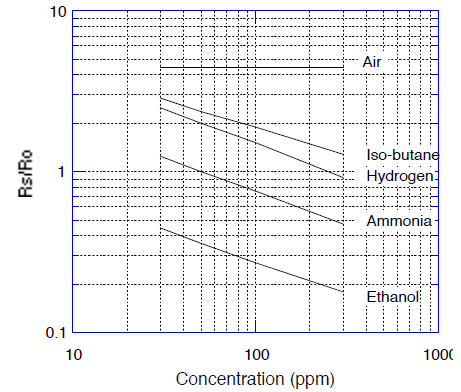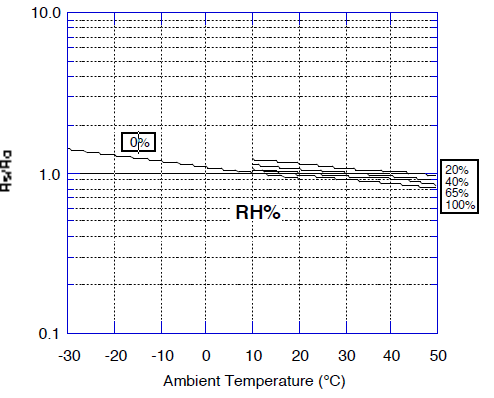Ammonia Sensor
-
Price
Price on request ≥1piece
-
Model Number
TGS826 -
Data Sheet
-
Package
Original packaging -
Specs
TGS826 -
Quantity
- +Send Inquiry
Product Description
Features:
* High sensitivity to ammonia
* Quick response to low concentrations of ammonia
* Uses simple electrical circuit
* Ceramic base resistant to severe environment
Applications:
* Ammonia leak detection in refrigerators
* Ventilation control for the agricultural and poultry industries
Specifications
| Target gases | Ammonia |
|---|---|
| Typical detection range | 30-300ppm |
| Sensing principle | MOS type |
| Driving voltages |
Heater Voltage:5.0V Circuit Voltage:Max24V |
| Power consumption | 833mW |
| Dimensions | φ19.5×16.5mm |
| Weight | Approx. 7.7g |
The sensing element of TGS826 is a metal oxide semiconductor which has low conductivity in clean air. In the presence of a detectable gas, the sensor's conductivity increases depending on the gas concentration in the air. A simple electrical circuit can convert the change in conductivity to an output signal which corresponds to the gas concentration.
The TGS826 has high sensitivity to ammonia gas. The sensor can detect concen-trations as low as 30ppm in the air and is ideally suited to critical safety-related applications such as the detection of ammonia leaks in refrigeration systems and ammonia detection in the agricultural field.
The figure below represents typical sensitivity characteristics, all data having been gathered at standard test conditions (see reverse side of this sheet). The Y-axis is indicated as sensor resistance ratio (Rs/Ro) which is defined as follows:
Rs = Sensor resistance of displayed gases at various concentrations
Ro = Sensor resistance at 50ppm of ammonia
Sensitivity Characteristics:

The figure below represents typical temperature and humidity dependency characteristics. Again, the Y-axis is indicated as sensor resistance ratio (Rs/Ro), defined as follows:
Rs = Sensor resistance at 50ppm of ammonia
at various temperatures/humidities
Ro = Sensor resistance at 50ppm of ammonia
at 20°C and 65% R.H.
Temperature/Humidity Dependency:



